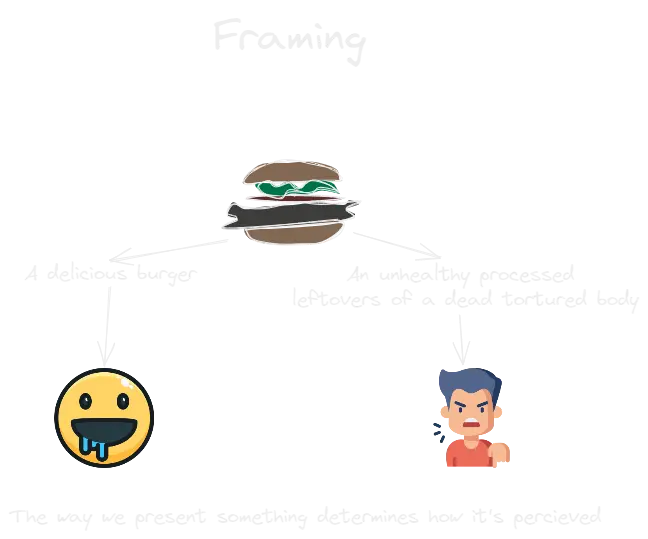Framing
Notes
The way we describe something changes the way it is perceived. for example, asking us whether we want to save 500 or risking 1000 vs losing 500 or risking 1000 can cause us to be more/less risk averse because it changes what we focus on. Risk Management.
We are creatures of narratives, our Subjective Reality is shaped by the stories we tell ourselves, and framing is the micro version of such story. We lack access to the objective aspect of something. We can't grasp an idea or even an object without connecting it first to a story.
A framing is such a story, it gives the viewpoint from which we can see it, emphasizing certain aspects while hiding others.
Therefore, framing can cause ideas to be more acceptable, for example instead of asking "how can we achieve x", we ask "we achieved x, how did it happen?" This type of question frees us from fear of uncertainty, reduces stress (because we have already achieved what we wanted), which allows us to think creatively or plan for "failure" Reverse Thinking
Similarly, Anchoring is a type of framing. By being the firsts who attach a value to an object, we limit the other's flexibility to change it drastically.
Framing is an effective yet dangerous tool. It can be used to divide us us vs them but also unite us inspiration. Arguments can either be caused or solved by a change in framing, without changing the "thing itself".
Similarly, framing can also be relevant to the events of our lives, and not just external ideas or objects. A positive framing can push us towards proactiveness, and a negative one can promote helplessness.
While it is hard to break free of an existing framing, it is one of the most beneficial things we can do growth mindset.
Visual

Overview
🔼Topic:: Communication (Map) 🔼Topic:: Narratives ↩️Origin:: 🔗Link::